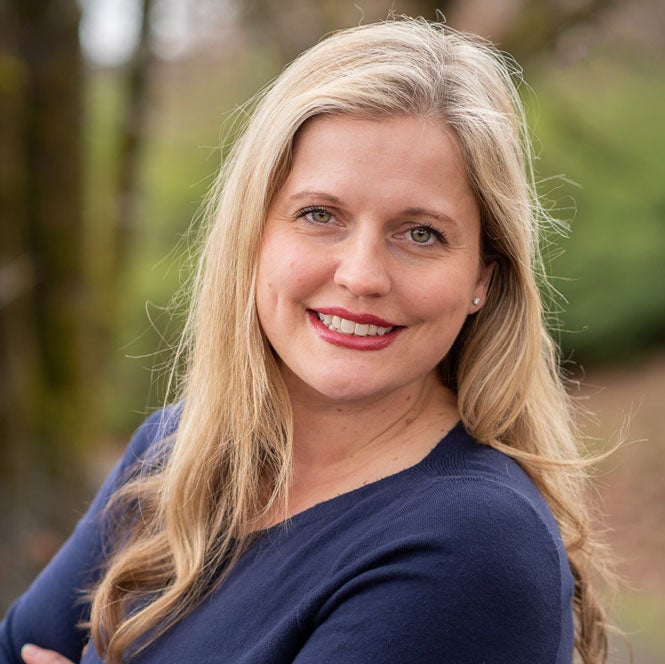Liz Mohr never planned to conduct research, much less present it at a national conference. Yet she’s doing both.

Mohr is in her first semester of Boise State’s adult gerontology nurse practitioner program. She’s a nurse in the intensive care unit at Riverbend Hospital in Springfield, Oregon, and her primary responsibility is recovering open heart surgery patients.
She was the catalyst for research that now impacts patients across an entire system of hospitals.
“Within our unit, we have a handful of us that it is our primary role to recover the heart patients,” Mohr said. “I guess I was the squeaky wheel…other people may have felt frustrated, but I think sometimes we get used to that ‘this is just the way it is.’”
Thanks to Mohr’s “squeaking”, a team at Riverbend Hospital developed a new recovery process for open heart surgery patients.
Due to the nature of the surgery, these patients are often placed on heart and lung machines. According to the Society of Thoracic Surgeons, best practice for the recovery process is to have the breathing tube removed within four hours.
But post-surgery care is not a quick process. Using the old method, by the time Mohr completed necessary steps for one patient – including documentation, monitoring the patient’s blood flow, interacting with the patient’s family and communicating with the pharmacy and respiratory therapists – she was already four hours into her shift.
“We were really missing the bar,” she said. “It was frustrating.”
Developing a new process
About three years ago Mohr brought the problem to her management’s attention. Since then, through her coursework, she’s worked to research and develop an algorithm for an enhanced recovery process.
The new process now involves a quick huddle at the patient’s bedside immediately after the patient leaves the operating room. Instead of one nurse working one step at a time, three nurses, the anesthesiologist, respiratory therapist and pharmacist meet together and discuss the goals and plan for the patient. This enhanced communication streamlines the recovery process and reduces wait times between each department and provider.
“We have had improvement in our extubation times, we’ve had improvement in our total in our patient outcomes, and discharges have gotten quicker out of the [intensive care unit],” Mohr said. “Length of stay in the hospital has been less for these patients and their overall outcome has been improved.”
The team’s efforts have been so successful that in the last year, the health system that Riverbend Hospital is a part of, PeaceHealth, implemented the process in all its hospitals across Oregon, Washington and Alaska.
Sharing findings for greater impact
Aside from kick-starting the conversation for a new process, Mohr’s role in the research has primarily been as a liaison between the bedside providers and the research team. They continue to gather data and hold monthly meetings to discuss how they can further improve the process.
Mohr and her critical care professional practice leader, Serafin Snare, will present their research at the National Teaching Institute conference this May. This is an annual conference hosted by the American Association of Critical-Care Nurses.
Although this is her first experience with in-depth nursing research, Mohr hopes to be able to continue researching the cardiovascular patient population.
“Things that we can work on next are talking to the pre-op nurses about more education for these patients so that they can have better outcomes at home with their mobility, and with their medication management and diets,” Mohr said. “With the lack of healthcare resources across the United States, I think education to patients has to happen across the board, especially in their hospital stay, but it really needs to start in that preoperative setting. We can be better about that.”
Those interested in learning more about enhancing the recovery process for cardiovascular patients can contact Mohr at lizmohr@u.boisestate.edu.